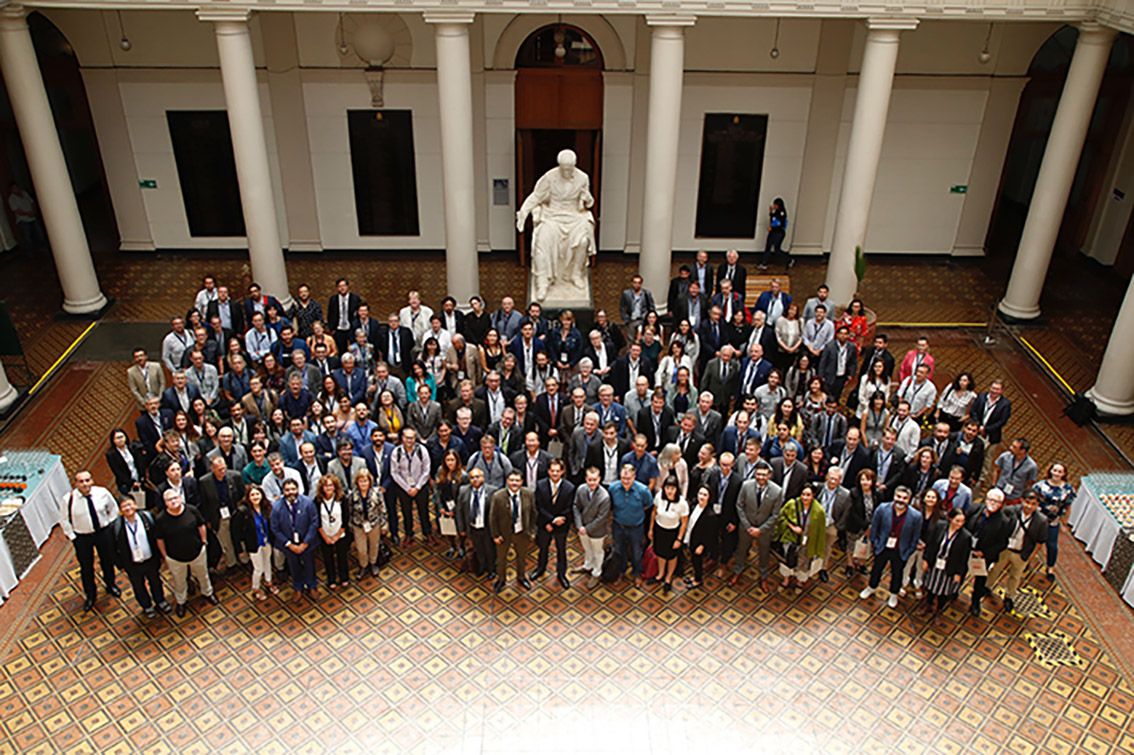Will immunotherapy be the treatment of the future to fight cancer and will it be accessible to all or a privilege for a few?
Which are the major challenges of aging that are emerging in European countries and Chile?
Do we know how many pesticides the foods we eat contain? Which problems face migrant women, whom are particularly discriminated?
How can we adapt to extreme events intensified by climate change?
What can the world learn from the Swedish innovation and creativity formula?
More than 200 researchers will address these and many other questions during this week at the "II Chile-Sweden Academic Forum, Santiago 2018", the largest binational scientific meeting of the year in the Chilean capital. The event, organized by the University of Lund, the Pontificia Universidad Católica de Chile, the University of Uppsala, the Universidad de Chile, seeks to deepen international networks to face the global challenges associated with the sustainable use of natural resources, the phenomenon of migration, the quality of medical care and the promotion of innovation policies, among other issues.
Chile and Sweden share strong political and economic ties throughout their history. Today more than 50 thousand Chileans live in Sweden, including many researchers. These ties represent an opportunity for the main universities of both nations to seek answers to the great global challenges that humanity is facing. The first Chile-Sweden forum was held in Lund University in August 2017, an event in which 10 areas of common interest were discussed in interdisciplinary workshops. Moreover, on that occasion, the funding agencies of each country agreed to start the Chile-Sweden Fund for Support and Cooperation of Research and The Access platform, that aims to facilitate and deepen the academic relations between both countries, was created.
"From this platform we want to deliver answers and solutions to phenomena of planetary transcendence, such as cancer, climate change, migration, the aging of the population and sustainable nutrition, among many others”, said the President of Universidad de Chile Ennio Vivaldi. “This collaborative spirit is very important to the internationalization process that we promote and in our purpose of leading the country towards a society with an economy based on knowledge”.
The President of the Pontificia Universidad Católica de Chile, Ignacio Sánchez, stressed the importance of collaboration in cutting-edge research. "This is a unique opportunity to strengthen bonds with the best universities in Sweden, adding to this joint collaboration other Chilean regional universities. Thus, this platform becomes a major collaborative opportunity to promote research and the development of innovation through the contact of top-level experts, which contribute to tackling global problems locally”, Mr. Sánchez said.
International Alliance to face global challenges
In this second version, the forum will increase to 20 the number of participating institutions, including the University of Stockholm, the Karolinska Institute, the Royal Institute of Technology in Stockholm and the University of Agricultural Sciences of Sweden. Meanwhile, the Chilean universities of Concepción, Antofagasta, Aysén, O'Higgins, Magallanes and Santiago will also be added.
Leif Kirsebom, Director of Access for the Uppsala University and Professor of the Department of Cell and Molecular Biology, explained that new knowledge and innovation can be expected from this partnership. He also highligthed the common interest there is in different topics.
“Chile has a long coast, water issues, and in Sweden we have interest in that. We also have energy resources, and we share common issues, like for example, migration. So here we can meet, benefit and learn from each other”. He also highlighted that exchange of students and academics that also can participate in the teaching process are other contributions that Access can bring.
“This collaboration is important for Sweden as a country, because there are many researchers in our universities that have both a professional and personal relationship with Chile. This is an underlying reason, that drives everything forward, and it gives everyone a personal engagement in the Access project”, explained Mrs. Stacey Ristinmaa Sörensen, Vice-Rector for Research and Research Infrastructure at Lund University. “In today’s world we need to work on complex problems by bringing in a lot of different expertise, knowledge and understanding, and to work on things in a new way”.
Some of the issues to be discussed during this week by the different working groups are the green economy, the sustainable use of overexploited water basins, and the management of natural disasters as a crucial aspect of sustainable and resilient societies. In addition, the social challenges in Chile and Sweden will be analyzed, such as migration in the contemporary context or threats to the current democratic system.
Workshops and seminars will also be organized regarding the improvement of medical care quality; innovative methods to deal with diseases associated with aging; resistance to antibiotics as an emerging problem in health systems; and the transformations of cancer due to the increased life expectancy.
"We are trying to understand how antibiotic resistance is spreading, how we can inhibit and stop that spread through difference means. This is a global phenomenon and nothing that we can solve in Sweden by ourselves. So, together with our Chilean colleagues we can study and obtain a more comprehensive view of this research field”, said Rolf Lood, associate professor at Lund University.
Matías Broschek Santelices
